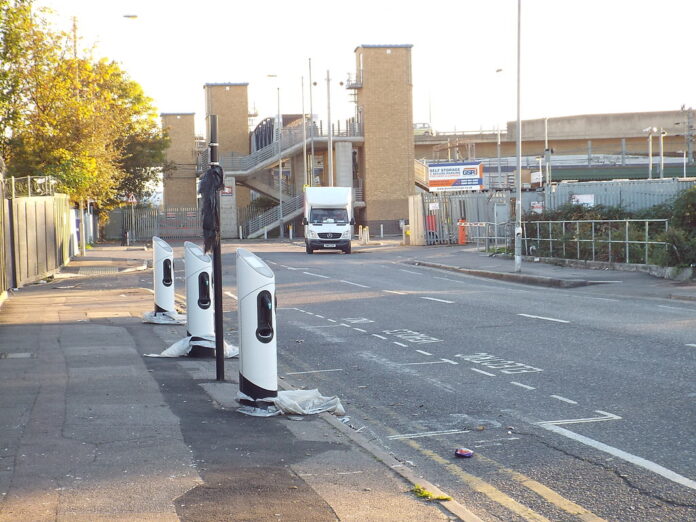
- A new study reveals which regions in the UK are the most in line with government guidelines for zero emissions in 2035 – and London is top
- The findings follow an analysis of electric charging points nationwide, looking at the number of vehicles per electric charger
- North Ireland has been named least prepared for the changeover to electric vehicles
- Other parts of the UK could learn from London, as the RAC revealed that England has missed the target for the number of high-powered EV chargers near motorways
A new study has revealed the regions most prepared for the government zero emission plans of 2035, with London being able to provide the most support for EV vehicles.
The research conducted by motor trade insurance experts One Sure Insurance analyzed the number of EV chargers within each area, and the number of vehicles registered to identify which cities are most prepared for the government guidelines.
The government has announced that manufacturers of new zero-emission cars will be required to increase their production by a certain percentage each year until 2035. By the year 2030, 80% of all new cars sold will need to be electric.
These new regulations will require cities and towns to prepare for an increase in demand for electric charging stations – with the government stipulating that every motorway service station in England should have at least six rapid or ultra-rapid chargers by the end of 2023.
However, it turns out that England has missed this target, according to the RAC via Zapmap, with just 46 of 119 analysed sites having six high-powered charging facilities in place. But some parts of the UK are still accommodating for EV drivers when it comes to the number of chargers available in each city.
The study found that London is the most prepared region when it comes to meeting 2030 goals, with 1,905 chargers per 100k registered vehicles. While this is still a long way off the government target of all new cars being electric by 2035, it’s still miles ahead of other parts of the UK.
Scotland is the second most prepared part of the UK, with an average of 115 chargers per 100K registered vehicles in each city.
Surprisingly the North West of England was the third most prepared area for the changeover to electric vehicles, as cities in the region report an average of 110 chargers per 100K registered vehicles. Liverpool is the best city in the North West for electric chargers, with 248 chargers per 100K registered vehicles.
While some areas in the UK are increasing the number of available chargers, others are struggling to keep up. Northern Ireland has been named the least prepared for the transition to electric vehicles.
The data revealed that, on average, cities in Northern Ireland have only 35 EV charging points per 100k registered vehicles – and in Derry there are only 11 chargers per 100K registered vehicles.
Yorkshire and Wales were named the second and third least prepared areas of the UK for the switch to electric vehicles. On average, cities in Yorkshire had only 42 chargers per 100k registered vehicles.
| Region | Average EV Chargers per 100k Registered Vehicles |
| London | 1,905 |
| Scotland | 115 |
| North West England | 111 |
| West Midlands | 99 |
| North East England | 89 |
| East England | 87 |
| East Midlands | 79 |
| South West England | 66 |
| South East England | 65 |
| Wales | 58 |
| Yorkshire | 42 |
| Northern Ireland | 32 |
Speaking on the findings, an expert from One Sure Insurance advised, “When considering switching to an electric vehicle, it is not just the availability of public charging points that you need to think about, but also how you will charge your EV from home. This is especially important for drivers who don’t have parking spaces at home.
“For those who must use public EV charging stations, it is important for the city they live in to have enough charging points for both local drivers and tourists visiting the city. The availability of charging stations is a significant factor that drivers consider when deciding whether to switch to an electric vehicle.
“If cities are not properly prepared for an influx of electric vehicles, many drivers will not make the switch. With the added cost of electricity set to rise again in January, the government needs to work harder to make electric vehicles a viable option for car owners.”
Credit: researcher, One Sure Insurance
Help keep news FREE for our readers
Supporting your local community newspaper/online news outlet is crucial now more than ever. If you believe in independent journalism, then consider making a valuable contribution by making a one-time or monthly donation. We operate in rural areas where providing unbiased news can be challenging. Read More About Supporting The West Wales Chronicle
























